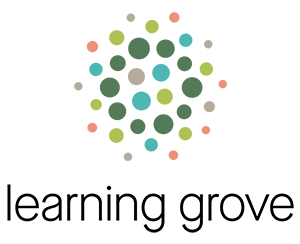By Jacob Perkins
The Kentucky Teacher
In an effort to recognize the work of educators and programs that serve students with a variety of learning needs, the Kentucky Department of Education (KDE) has named 11 Alternative Programs of Distinction. The programs will be recognized at the Kentucky Board of Education’s regular meeting in June.

The Phoenix School in Jefferson County.
An alternative education program is designed to meet the needs of students that cannot be addressed in a traditional classroom setting. These programs can be alternative classrooms, centers or campuses that are designed to remediate academic performance, improve behavior or provide enhanced learning experiences. Alternative education programs do not include career or technical centers or departments.
Interim Education Commissioner Kevin C. Brown said alternative programs are an essential educational option for Kentucky’s students.
“Alternative programs are vital to the future of the children of the Commonwealth,” said Brown. “We can’t reach every child in a traditional classroom setting. We have to work with our students to find what works best for them and put them in the best possible situation to succeed.”
The 11 programs named Alternative Programs of Distinction for 2020, with the districts that operate or staff them in parentheses, are:
• Fayette County Learning Center (Fayette County)
• Jackson Academy (Warren County)
• McCracken Regional School (McCracken County)
• Mercer Day Treatment (Mercer County)
• Regional School Programs (Dayton Independent)
• The McDaniel Learning Center (Laurel County)
• The Phoenix School of Discovery (Jefferson County)
• The Providence School (Jessamine County)
• Transformational Learning Center (Covington Independent)
• Western Day Treatment (Jefferson County)
• William Cofield High School (Franklin County)
Ken Moeller, principal of the Phoenix School of Discovery, feels that this recognition validates the hard work of alternative programs in Kentucky because, at times, these programs can be overlooked.
“Something like this kind of pulls things out of the way and gives people a chance to see that alternative schools are unique and creative and are helping kids in a way that is different and necessary,” said Moeller.

Sean Bohannon, assistant principal, and Lorie Duffey, principal of Transformational Learning Center (Photo provided)
Since 2012, Phoenix has evolved into an optional school that specializes in meeting the needs of struggling students through differentiated instruction. Classes are taught by highly qualified educators in a setting that offers a small student-to-teacher ratio. Instruction is further enhanced by technology and interventions targeting students’ social, emotional and academic needs.
Moeller says the school’s goal is not only to prepare students in grades 4-12 to reach state proficiency levels, but also to meet the needs of the students where they are and to equip them with the necessary skills to be successful in life after high school.
Each program selected as an Alternative Program of Distinction receives a monetary award from the Kentucky Department of Education for instructional support. Information on the schools also will be posted on the KDE website, so other schools can use the programs as models.
KDE began highlighting exemplary practices in public school alternative programs in 2009. Alternative programs include school district-operated and district-housed instructional programs that provide services to students with a variety of unique needs.
They also can be district-operated instructional programs that are located in non-district facilities or schools and serve youth who are considered state agency children through the Kentucky Educational Collaborative for State Agency Children, the Department of Juvenile Justice, the Department of Community Based Services and/or the Department for Behavioral Health, Developmental and Intellectual Disabilities.
Kentucky Teacher is a publication of the Kentucky Department of Education.



















